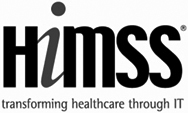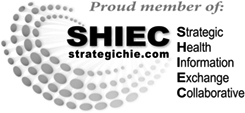Providers using Reliance soon will have better access to opioid prescription data, thanks to an Oregon law passed last year allowing Reliance to connect with the Oregon Prescription Drug Monitoring Program (PDMP).
The Oregon Health Authority’s PDMP vendor soon will be ready for Reliance to begin connecting with them to allow users who also has active user credentials with the PDMP to query their patient’s PDMP report right from the patient’s Community Health Record in Reliance. The new functionality eliminates the need to log into multiple portals and manage multiple logon credentials.
This query capability eases the burden on providers to identify frequent opioid use and determine the best course of treatment. Having access to more complete information can lead to the early identification and intervention of opioid misuse, better care planning to manage pain, and the prevention of overdoses that can lead to death.
For more information, contact Reliance at: add contact info
Prescription Drug Monitoring Program Fact Sheet
Seamless Access to Controlled Substance Prescription Information
Health care providers now have a new way to access the Oregon Prescription Drug Monitoring Program (PDMP) thanks to an amendment to Oregon law governing the PDMP. The Oregon Health Authority (OHA) will now allow health information technology systems, like Reliance eHealth Collaborative, to make PDMP information more accessible.
Reliance users will soon be able to retrieve PDMP information via Reliance’s Community Health Record. When an authorized PDMP user looks up his/her patient in Reliance, he/she can pass directly to the PDMP to view the patient’s controlled substance prescription information.
What are the Benefits of Connecting the PDMP with Reliance?
Workflow Configurable Information Access
Authorized PDMP users who participate in Reliance will no longer have to log-in to the PDMP separately. Instead, when a patient is looked up in Reliance, the user can simply click a link to access that patient’s PDPM record. The PDMP record can then be downloaded into the user’s electronic health record system or printed and added to the paper chart. The connection allows for faster access to PDMP information and is seamless to the user. Reliance passes the user name and password to the PDMP and automatically finds the PDMP record displaying it in the Reliance Community Health Record, saving time and improving patient care.
Comprehensive Health Information – One Location
As the only Health Information Exchange in Oregon capable of supporting mental health and substance use treatment information sharing, Reliance has implemented a consent model that respects the patient’s wishes for whom their specially protected health information can be shared. Coupled with the streamlined access to PDMP information, Reliance continues to provide a comprehensive approach to robust health information exchange that brings together physical, behavioral and dental health information to advance Oregon’s health care transformation initiatives.
Who Can Access PDMP Data?
Individuals authorized by Oregon law with active PDMP accounts are authorized to receive results from the PDMP using Reliance eHealth Collaborative. To register with the PDMP, a physician or pharmacist must:
- Have a valid license to practice;
- Be authorized by OHA to access PDMP data in accordance with applicable law;
- Agree to access or use PDMP data only for health care decision-making; and
- Properly authenticate to the Oregon PDMP through Reliance, when seeking to query patients.
To enroll in the Oregon PDMP, or find more information visit:
http://www.orpdmp.com/health-care-provider/
What are the Benefits of Accessing Patient Information in the PDMP?
Opioid misuse is an epidemic in the United States and the Oregon Health Authority indicates that an average of three Oregonians die every week from prescription opioid overdose with an average annual age of death is 12. According to the Centers for Disease Control and Prevention (CDC), 91 Americans die every day from an opioid overdose. Opioid overdose deaths, including opioid pain relievers (such as oxycodone) and heroin, killed more than 33,000 people in the U.S. in 2015, more than any year on record, and nearly half of all opioid overdose deaths involve a prescription opioid. The CDC also confirmed that overdoses from prescription opioids are a driving factor in the 15-year increase in opioid overdose deaths, which have more than quadrupled since 1999. Accessing PDMP data will help address this crisis by providing:
- Faster identification. Being able to view the patient’s history in Reliance’s Community Health Record, along with the opioid prescriptions in the PDMP will allow providers to identify an overdose and/or prescribing history and determine the best course of treatment.
- More information. Having access to more complete information can lead to the early identification and intervention of opioid misuse and lead to the prevention of overdoses.
- Easier referrals. Using Reliance’s eReferrals tool, the provider can then move seamlessly to create a referral for the patient to treatment services to address a suspected opioid abuse issue. For example, the clinician can create a referral for a drug treatment assessment and then monitor the patient’s progress resulting from the referral.
- Active alerts. Reliance users can set alerts to be notified when their patients receive opioid prescriptions from other prescribers.
What are Permitted Purposes for Accessing PDMP Data?
The approved provider, or his/her delegate(s) may retrieve PDMP data via Reliance only for the purposes of individual patient treatment and for prescribers to monitor the dispensing of prescriptions under their DEA licensure.
The Provider or his/her delegate(s) may not receive, create, use or disclose PHI or confidential information except as follows:
- To facilitate the transmission of PHI from the Oregon PDMP to the Eligible and Approved Entity in accordance with ORS 431A.855-431A.900.
- If necessary for the proper management and administration of the Approved Entity or to carry out legal responsibilities of the Approved Entity if such use or disclosure is in compliance with privacy and security laws, and ORS 431A.855-431A.900 and OAR 333-023-0805 through OAR 333-023-0830.
Does Reliance Store PDMP Data?
By law, Reliance may not retain patient PDMP information in the health information exchange. However, authorized PDMP users accessing patient prescription records through Reliance may capture, download and record patient PDMP information in their own patient record.



